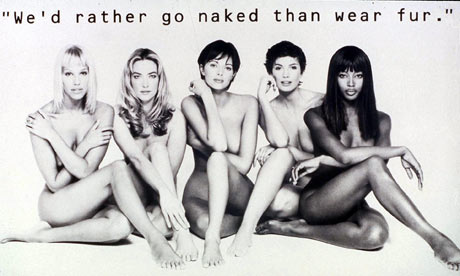According to a recent Reuter’s article, a New York artist was arrested on lewdness and indecent exposure charges for painting (on) a nude model in the middle of Times Square. His lawyer argued that that public nudity is acceptable in the name of art, and as a result, an interesting compromise has been reached.
Charges against Mr. Andy Golub (the artist) will be dropped if he agrees to:
- Only paint bare breasts during the day.
- Instruct the model to keep her g-string on until after dark.
- Not violate conditions 1 or 2 for the next 6 months.
This contract raises two interesting questions. Continue reading “Nudity is Okay…Only after Dark”


